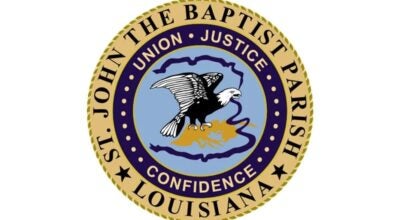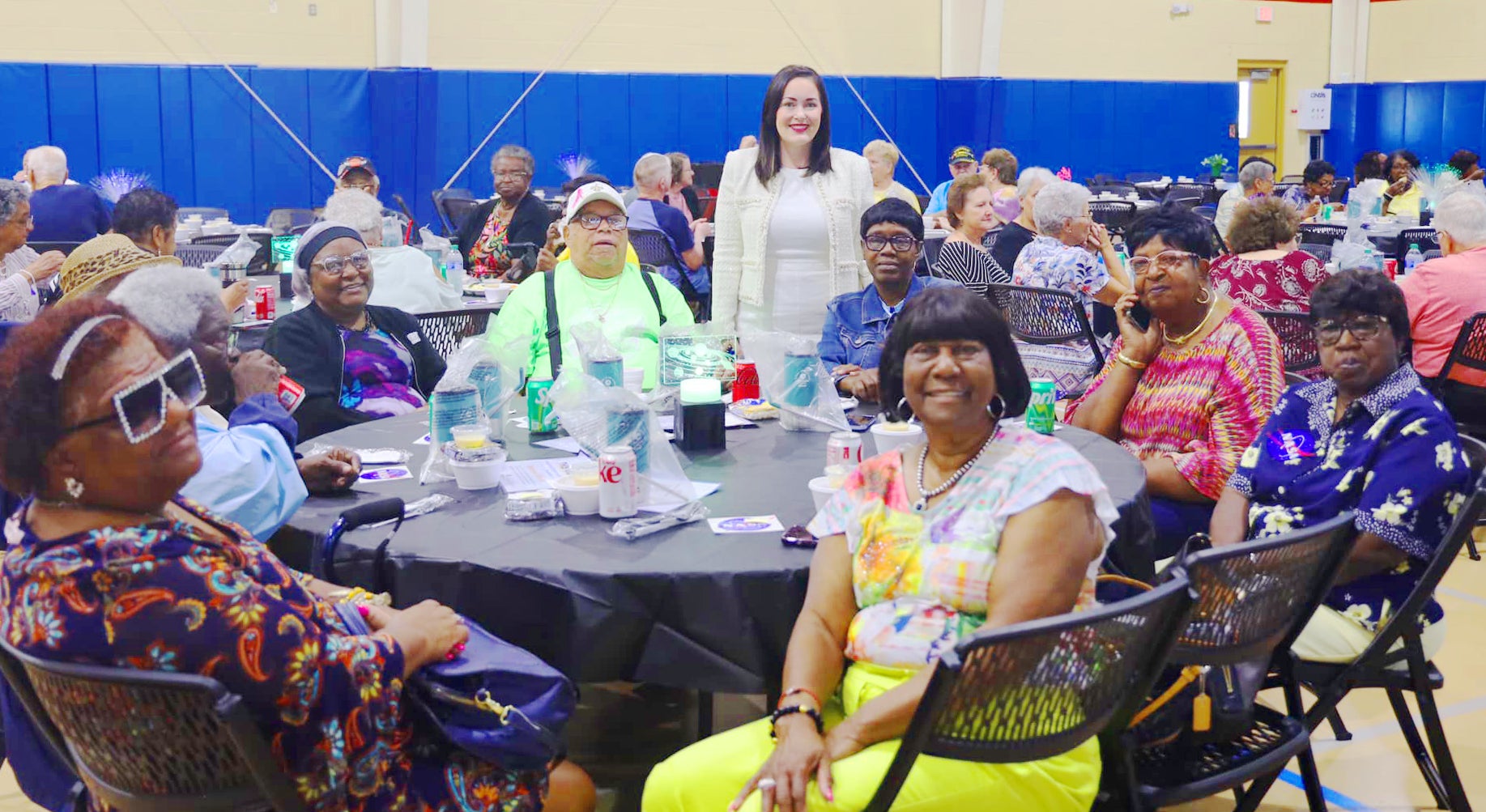Pratt: St. James Parish Hospital is dedicated during disasters
Published 12:03 am Saturday, July 20, 2019

- Mary Ellen Pratt
The closer a storm gets, the more we can’t escape the news. It seems every television, computer screen and Facebook feed is constantly filled with information to help us plan and prepare. Some prepare to stay home. Some prepare to leave. There is also a group of people who prepare to say goodbye—at least for a few days. Disaster or not, our hospital is always staffed and operating as long as we can safely provide care.
If you walked into our hospital during a shelter-in-place emergency, you might be surprised to know that we have sleeping quarters set up to ensure we can remain staffed 24/7 for our community. You might even be shocked to see certain people walking around. Maybe our marketing director is sitting with a laptop in the boardroom or our surgery director is walking the Acute Care halls. No, we aren’t planning commercials or doing elective surgeries during hurricanes. Instead, our facility is transformed into a command center designed to effectively manage emergencies.
During a hurricane, our marketing director wouldn’t be working on advertising, but instead is in charge of communicating important information to staff and the community. And, our surgery director (or possibly another appointed leader) would not be managing a surgery department. Her job within this framework would be ensuring that our nursing team has all of the tools, equipment and information needed to care for our patients despite the challenges that an emergency can bring.
What is HICS?
HICS stands for Hospital Incident Command System. The Incident Command System (ICS) is a management system designed to enable effective and efficient incident/emergency management (planned or unplanned) by integrating a combination of facilities, equipment, personnel, procedures and communications operating within a common organizational structure. IC was built on principles of the US Navy following catastrophic wildfires in California when it was determined that response problems where more often due to ineffective communication and management than lack of resources or tactics. IC can also help during planned events in which an influx of patients or people is expected at a given time.
HICS at SJPH
Our Executive team completes off-site HICS training. All leaders at St. James Parish Hospital are required to participate in HICS education to learn how to function within this system. In the IC chain of duty, we are taught to think first about mitigating risk to people (patients then staff) and then limiting risk to property.
Once we make the decision to go into “Incident Command” to respond to an incident—hurricane, mass casualty event, chemical explosion—our titles and job duties are completely stripped and reassigned. This standardized structure not only clearly defines roles within our facility, but also within our community.
During emergencies there are typically many important agencies involved in responding—local governments, law enforcement agencies, other healthcare facilities, offices of emergency preparedness. Because each group follows the IC structure, we create synergy when working together during emergencies and can more effectively respond.
Within IC, leaders are assigned to predetermined roles based on the type of event and current need. They must follow this new role (which is usually different but related to their background) and often report to a new person. Leaders in IC must ensure that employees have all of the tools, resources and information needed to offer the same quality care provided during normal business operations. Our role during emergencies is to do the running for supplies, calling to coordinate resources and meeting to plan for their needs so that the primary focus of caregivers is caregiving.
HOSPITAL PREPARATIONS
We are equipped with special generators (which are tested throughout the year) and plans for utilizing resources efficiently should emergencies arise. As soon as a storm is expected, our leaders begin thinking of possible supply issues and plan accordingly.
Each department has predetermined “teams” that are on stand-by when emergencies arise. If it is determined that driving conditions are extremely unsafe or likely to cause issues with essential staff getting to work, we create a “shelter-in-place” order in which employees remain at the hospital 24/7.
Our safety officer is in direct contact with our regional Emergency Operations Center. As soon as there is even a slight possibility of a serious weather event, our safety leader is on high alert, attending meetings, monitoring and sharing up-to-date information with other department leaders. Once a storm is imminent, our Executive Team meets to determine if and when IC should be enacted, who will serve on the IC command team and what staffing plans need to be put in place. As soon as IC is enacted, employees are notified and the command team is on-site 24/7 to make decisions and offer support until normal operations resume.
PATIENT PREPARATIONS
We also want to remind you about important preparations in regard to your health:
- Visit your parish government’s website and Facebook page for up-to-date information during emergencies and for more information about signing up for emergency alerts.
- If you have special medical needs (such as medical equipment that must be powered by electricity) and need assistance should an evacuation be ordered, St. James and St. John Parishes’ Office of Public Health is in Region 3 (Thibodaux) and can be reached at 985-447-0916.
- If you have certain medical needs, you may qualify for refuge in a Medical Special Needs Shelter during an emergency. Once shelters are announced, a toll-free number will be advertised for residents to call to get more information.
- Make sure to refill medications before a possible storm. There are usually relaxed refill requirements during a state-of-emergency.
- If evacuating, bring a five-to-seven day supply of medications in original bottles. This is especially important if hospital care is needed.
- Have five-to-seven days of medical supplies on hand and bring any medical equipment when evacuating or sheltering.
- Label all of your medications and medical equipment with your name, address and phone number.
- Keep identification, health insurance cards, care instructions and medical orders with you and easily accessible at all times.
- During emergencies/disasters, call 211 for updates and information (choose either New Orleans or Baton Rouge as the office closest to you) or “Like” the Louisiana Department of Health on Facebook.
Mary Ellen Pratt is St. James Parish Hospital CEO. She can be reached at info@sjph.org.




